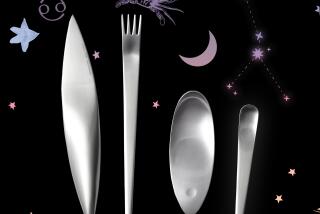Mortality and that gift we call time
- Share via
Readers send me handwritten letters, and lots of e-mails, too, about a cruel reality none of us wants to think about: our inescapable mortality.
I hear about sick children and about adults of all ages suffering from catastrophic illness or the effects of injuries. Nothing stops the steady flow of mail, which continues through the months and through the years like chapters of an endless story we’ll all be a part of one day.
I don’t usually turn these into columns unless someone is fighting a health insurance company for a chance to stay alive. But maybe I should, because the letters often contain life lessons, soul-searching discoveries and a grace that is humbling.
All of this comes to mind for a very personal reason. I didn’t write a Sunday column last week because I was at a Redwood City hospital, waiting nervously with my parents while a doctor performed brain surgery on my sister, Debbie.
I don’t know if it’s really true that bad news comes in bunches, but my father had seized up a week earlier, on his 80th birthday, and was diagnosed with a mini-stroke. He was still in the hospital when my sister, who had been having severe headaches, got the results of an MRI that revealed her brain tumor.
My sister is only 57, and her son is scheduled to be shipped to Iraq later this year with the Marines. She was due a break when she went in for that MRI, not that fairness is anything but a concept.
Two years ago, she was diagnosed with ovarian cancer, the disease known as the silent killer because it’s often very advanced when symptoms first show up and is likely to recur even when initial treatment seems successful. The surgery, chemotherapy and radiation were all grueling, but she made it through with great courage and her usual sense of humor.
And now this.
Was the tumor unrelated, maybe even benign?
Possibly.
Had it metastasized from the ovarian cancer, which would mean it was malignant?
Possibly.
I marvel at the strength people find to handle these challenges. My sister laughed and joked at dinner the night before the surgery, and even on the gurney the next morning as we rode with her in the elevator on the way to surgery.
She said she’d bargained with God for at least five years when ovarian cancer was first diagnosed, and she was still counting on him honoring the agreement. I gave her the agnostic nod, squeezed her hand and told her I loved her.
While my sister was in surgery, I paced, drank coffee and in the end had to jot down some thoughts. This is part of the post I sent to The Times’ L.A. Now blog:
“Human suffering -- whether it’s Chinese children crushed by an earthquake, masses killed by a cyclone in Myanmar, or my poor sister having a tumor dug out of her brain while my parents try to pray away the worst-case scenario -- makes me less rather than more inclined to believe in anything but mortality.”
So I didn’t take my sister a holy book, but I did take her one that might provide a different kind of hope. At the Book Expo in Los Angeles, they were giving away advance copies of a book called “Anticancer: A New Way of Life,” by David Servan-Schreiber. It’s not the sort of title this cynic would generally pick up, but my sister’s situation made the decision for me.
Besides, though we spend billions trying to cure cancer, we’re still in the Dark Ages when it comes to understanding the causes, so I wanted to see what this guy had to say about it.
The author, a French-born psychiatrist and professor at the University of Pittsburgh School of Medicine, was diagnosed with a brain tumor and then a recurrence, so he set out to research everything that is known, anywhere in the world, about cancer and what causes it. Then he drastically changed his life.
Did it help?
He wrote the book 14 years after his diagnosis.
Servan-Schreiber is careful not to give false hope. Who gets cancer, and who survives, can be random events. But he makes a compelling argument that cancer rates are higher in the U.S. than elsewhere because of our exposure to toxins in everything from plastics to deodorant, and because of the use of pesticides and feed grain additives.
Then there’s the typical Western diet: not enough fruits and vegetables and too much refined sugar, white flour and the omega-6 fatty acids found in vegetable oils and animal fats, which Servan-Schreiber calls fertilizer for cancer cells.
When the surgery was done, my sister’s doctor had good and bad news. The golf ball-size tumor was removed without complication. But it was a malignant spread of the ovarian cancer.
Since then my sister has cried and prayed and found new resolve. There will be radiation and maybe chemotherapy, too. She’s on Chapter 4 of the book and is determined to put herself at the long end of the survival curve. I believe she’ll pull it off.
I spoke to her surgeon the other day and ran Servan-Schreiber’s anti-cancer ideas past her, wondering if she’d dismiss them. She didn’t. In fact, she said she encouraged patients to embrace the idea of nutritional and lifestyle approaches to fighting cancer and other diseases, along with conventional medicine.
“I absolutely believe that,” she said, adding that sugar can fuel the growth of cancer cells.
For all of us, time is a gift, and my sister has me thinking about how I spend the moments in a day. Each time we speak, I feel blessed, and lucky to know her strength and love.
--







